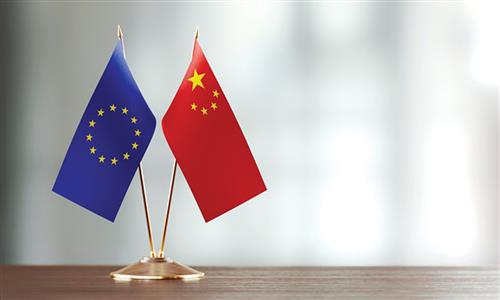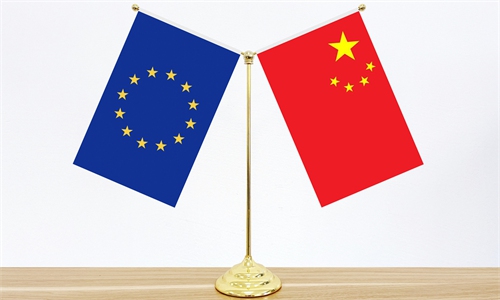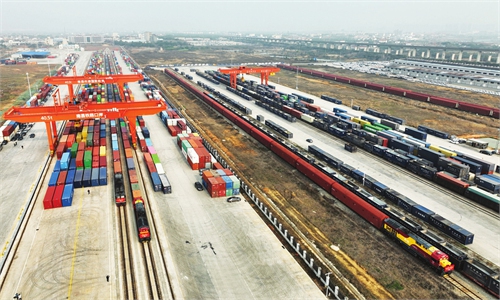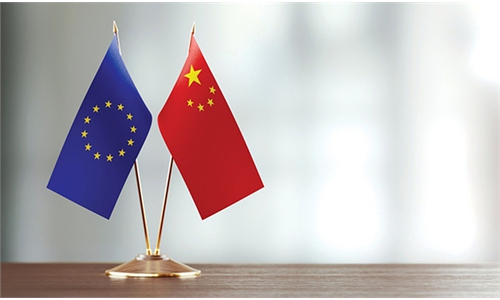Europe should take these words that China has repeatedly said to heart: Global Times editorial
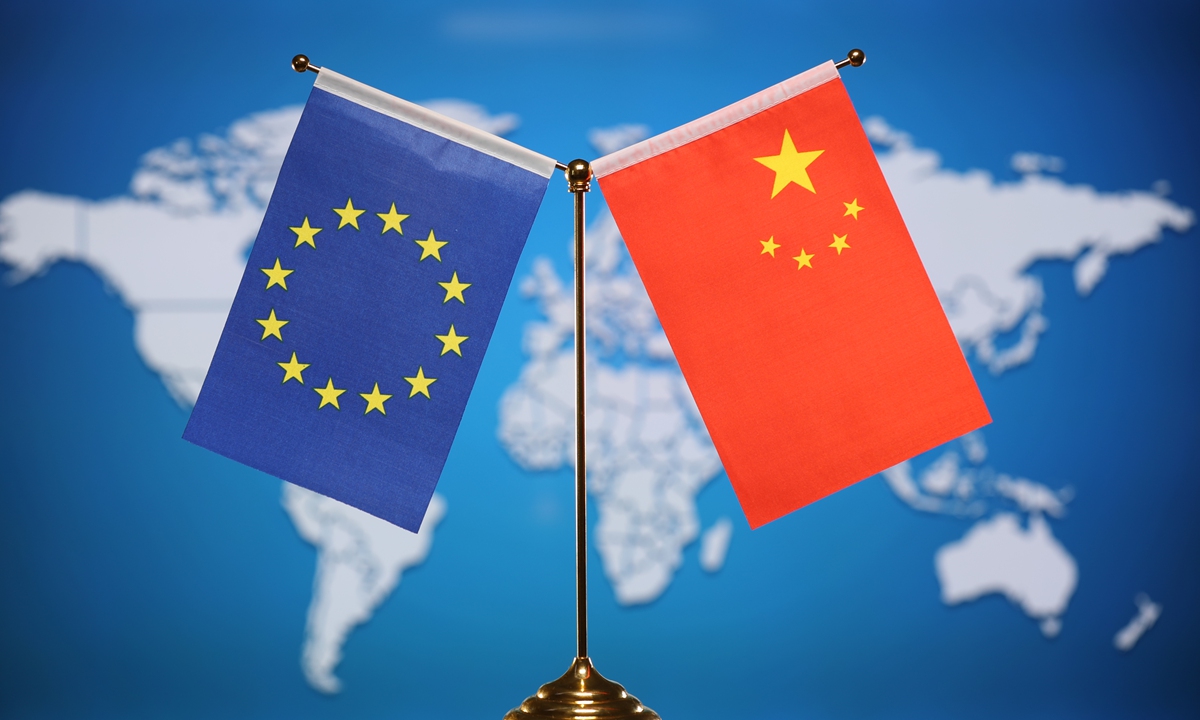
Photo:VCG
As agreed between China and the EU, the 24th China-EU Summit will be held in Beijing on December 7. President Xi Jinping will meet with President of the European Council Charles Michel and President of the European Commission Ursula von der Leyen. Premier of the State Council Li Qiang, President Charles Michel and President Ursula von der Leyen will jointly chair the summit.
This will be the first in-person China-EU summit in four years. Various sectors of the European society, especially the business community, are looking forward to hearing more good news from this summit, which represents the comprehensive restoration of the communication mechanism between China and the EU.
Prior to the meeting, the Chinese side emphasized that China and the EU are not rivals, and that their common interests far outweigh their differences. Almost at every important China-EU meeting or event, the Chinese side would emphasize this point. This is not said casually, but is in response to the misunderstanding and bias toward China in Europe, and it also reflects China's sincerity in developing China-EU relations. The summit needs to provide strategic guidance for the sustained and healthy development of China-EU relations, and the European side needs to provide clearer answers to this fundamental issue.
In a document released on June 30 this year by the European Council, China is still positioned as "a partner, a competitor and a systemic rival." This triple positioning toward China is not only wrong but also harmful. The policy toward China made by Europe based on this triple positioning is chaotic, vague, and highly unstable. The three-pronged approach of trying to reconcile different opinions within Europe caused confusion among many Europeans and leading to a loss of direction in their understanding of China.
"Partner," "competitor," and "systemic rival" are three distinct positions, not one. Placing them together is bound to result in contradictions and conflicts. In reality, Europe's policy toward China is increasingly shifting toward the direction of "competitor" or even "rival," such as advocating for a "de-risking" approach toward China, reinforcing political and security concerns, and aligning with the US' containment policies against China. All of these factors create unnecessary obstacles and difficulties for China-Europe relations. If this continues, there is a real possibility that China and Europe would turn from "partners" into "rivals," despite being an outcome neither side wishes to see.
Europe must address this significant issue of cognition and recognize that a comprehensive strategic partnership is the only accurate and proper positioning between China and Europe. This should have been a self-evident objective fact, but some Europeans, wearing various colored glasses, fail to see it clearly. Even during times of pronounced differences between China and Europe, our positions on fundamental issues such as upholding multilateralism, strengthening global governance, and opposing trade protectionism and unilateralism have consistently aligned. The coordination and mutual support in addressing global issues like climate change and promoting regional peace and stability have been smooth. Additionally, the enormous volume of trade between China and Europe has supported numerous mutually beneficial cooperative projects. There is no fundamental conflict between China and Europe; cooperation overwhelmingly defines our relationship. If this is not a partnership, then what is?
As long as we broaden our perspectives and open our minds, many issues are not inherently problematic, and even divergences can be effectively managed. For instance, the EU High Representative for Foreign Affairs and Security Policy Josep Borrell Fontelles has stated that the EU's Global Gateway strategy and the Belt and Road Initiative are not antagonistic to each other but complementary to each other, as both are aimed at promoting global development. The global infrastructure gap is in trillions of dollars, and no single country or economic entity can monopolize this market. Similarly, in some local conflicts and hot issues, Europe and China share a strategic consensus in advocating for ceasefires and active engagement in peace talks. Regarding specific areas of frictions, these can be addressed through dialogue and communication rather than fostering confrontation. This underscores the importance and value of strategic communication between China and Europe.
This China-EU summit coincides with the 20th anniversary of the establishment of the China-EU comprehensive strategic partnership, as well as the 25th anniversary of the China-EU summit mechanism. China hopes this summit will play a significant role in carrying forward past achievements and setting the stage for future developments. Face-to-face communication between leaders enhances mutual understanding and trust. Both sides can strengthen pragmatic cooperation by exploring innovation, address issues through dialogue and consultation, and tackle global challenges via collaboration. This vividly exemplifies the essence of a "comprehensive strategic partnership."
